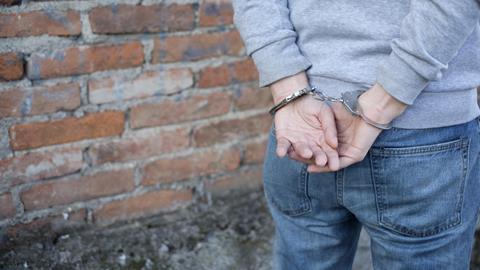In his Independent Review of Criminal Legal Aid, Sir Christopher Bellamy QC highlighted the crisis that successive cuts in rates have wrought upon those of us who are foolhardy enough to maintain a criminal law practice.
This crisis is now so severe that the very fabric of the criminal justice system is arguably on the verge of collapse. Firms are going out of business, few newly-qualified solicitors who are still saddled with debt from their student years wish to embark on such a career, lawyers are abandoning the discipline in droves, and advice deserts continue to develop throughout the country. Couple this with the crumbling and dilapidated courts, a bureaucratic, over-officious, and at times bullying Legal Aid Agency who is determined to make life particularly difficult for practitioners, we find ourselves forced to contemplate whether this line of work is worth the pittance that is paid. In truth, if we were here for the money, we would have all jumped ship a long time ago. We now find ourselves, however, at a crossroad where taking the easy path is no longer an option.
The Criminal Bar has been quick to respond to the government’s disappointing, if not unexpected, reaction to Bellamy’s recommendations - again showing common unity that enough is enough and that action as opposed to platitudes is the path to salvation. The ‘no returns’ policy is now biting and causing further delays in an already creaking system hit hard by the pandemic. Many firms of solicitors are supporting such action and resisting pressure from the Ministry of Justice to take on the work ‘in house’. However, more must be done by solicitors to achieve the ultimate goal: a very minimum 15% rise in fees recommended by the review. For my part, that is still insufficient as we face a huge cost of living hike which will make such a rise almost meaningless.
The response to the review has again highlighted a particular problem that continues to plague the criminal law community. Criminal lawyers have been their own worst enemy. Conflicting interests of large and small films, ego and selfishness, disjointed leadership and fear of government and Legal Aid Agency reprisals, has meant that a coordinated response has been difficult to organise. In 2013 and 2014 we managed to galvanise such action, whilst also highlighting the concerns. Ultimately, it was the government’s ineptitude at bringing into place its legal aid reforms that resulted in its failure. That is not to say our action was ineffective. I believe that the action we took at that time meant that firms were emboldened and better equipped to make the formal legal challenges to the disastrous tendering process that took place in 2015 and ultimately led to its abandonment.
Those of us in the profession are seeking clear leadership. While the LCCSA and the CLSA do try and do their best they are hampered. Not all criminal solicitors are in fact members, and these organisations are all too conscious that they are a loose conglomeration of interested parties, all with differing agendas and views. As a recent LCCSA email expounded the 'LCCSA is not a trade union, and so cannot direct our members or ballot for industrial action.' It would appear that the natural leader would be the Law Society, but alas, they too are hampered by the monopolies of legislation, and while they can undertake research, provide guidance, and recommendations, they are hamstrung in leading the profession into an all-out strike.
So what to do now? On the 25 April many of my colleagues attended a 'Legal Aid Consultation and survival training' event arranged by the LCCSA and CLSA which included a range of speakers including from the Law Society. Feelings were running high and many of those attending were advocating affirmative action, albeit that the nature of any such protest was a little vague. The event revealed why it is that we are so ineffective at defending ourselves. Whilst united in our outrage at the inequities meted out to us, we are seemingly ill equipped to firstly agree the nature of any action that should be taken and secondly putting it into action. How on earth can we defend our clients when we cannot defend ourselves?
The response from the LCCSA and Law Society has been to canvass opinion from members through online surveys. This however is a rather slow and cumbersome process with no guarantee that anything will come of the findings. In the absence of any clear leadership, it ultimately comes down to the individual. We must have a clear understanding of our value and we must never undersell ourselves. What we provide to the public and administration of justice is invaluable.
In 2018, legal services were worth nearly £60bn gross value added (GVA) to the UK economy. A part of the attraction of our legal services has been that of a fairness and incorruptibility of our justice system, as well as, in no small part, the availability of such legal aid and ultimate justice for the most disadvantaged in society when faced with the full might of the state and their prosecutors. At the end of the day, it is we who are the thin grey line providing protection to the vulnerable - and this must be protected at all costs.
Julian Hayes is senior partner at Berris Law
































1 Reader's comment